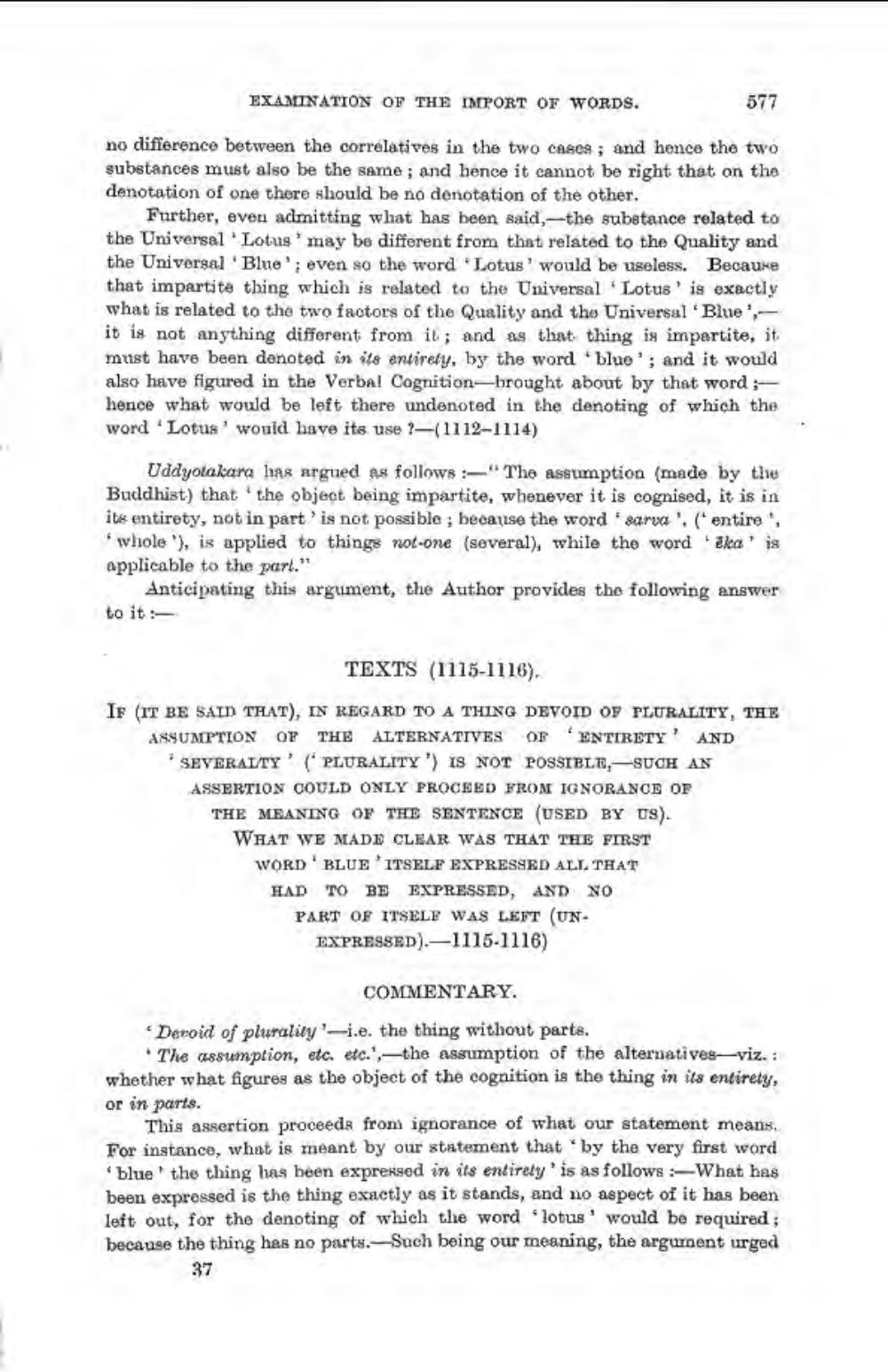________________
EXAMINATION OF THE IMPORT OF WORDS.
577
no difference between the correlatives in the two cases; and hence the two substances must also be the same ; and hence it cannot be right that on the denotation of one there should be no denotation of the other.
Further, even aclmitting what has been said, -the substance related to the Universal Lotus may be different from that related to the Quality and the Universal 'Blue', even so the word 'Lotus' would be useless. Because that impartite thing which is related to the Universal 'Lotus' is exactly what is related to the two factors of the Quality and the Universal Blue', - it is not anything different from it; and as that thing is impartite, it must have been denoted in its entirety, by the word 'blue'; and it would also have figured in the Verbal Cognition-brought about by that word; hence what would be left there undenoted in the denoting of which the word 'Lotus' would have its use 1-( 1112-1114)
Uddyotakara las argued as follows:-" The assumption (made by the Buddhist) that the object being impartite, whenever it is cognised, it is in its entirety, not in part' is not possible ; because the word "sarva ', ( entire * whole "), is applied to things not-one (several), while the word "Blea' is applicable to the part."
Anticipating this argument, the Author provides the following answer to it
TEXTS (1115-1116).
IF (IT BE SAID THAT), IN REGARD TO A THING DEVOID OF PLURALITY, THE ASSUMPTION OF THE ALTERNATIVES OF ENTIRETY' AND * SEVERAL TY' ( PLURALITY ') IS NOT POSSIBLE, SUCH AN ASSERTION COULD ONLY PROCEED FROM IGNORANCE OF THE MEANING OF THE SENTENCE (USED BY US). WHAT WE MADE CLEAR WAS THAT THE FIRST WORDBLUE ' ITSELF EXPRESSED ALL THAT HAD TO BE EXPRESSED, AND NO PART OF ITSELF WAS LEFT (UN
EXPRESSED).-1115-1116)
COMMENTARY.
Deroid of plurality'-.e. the thing without parts.
* The assumption, etc. etc.', -the assumption of the alternatives—viz. : whether what figures as the object of the cognition is the thing in its entirety, or in parts.
This assertion proceeds from ignorance of what our statement means For instance, what is meant by our statement that by the very first word
blue the thing has been expressed in its entirely is as follows:- What has been expressed is the thing exactly as it stands, and no aspect of it has been left out, for the denoting of which the word 'lotus would be required: because the thing has no parts.-Such being our meaning, the argurent urged




